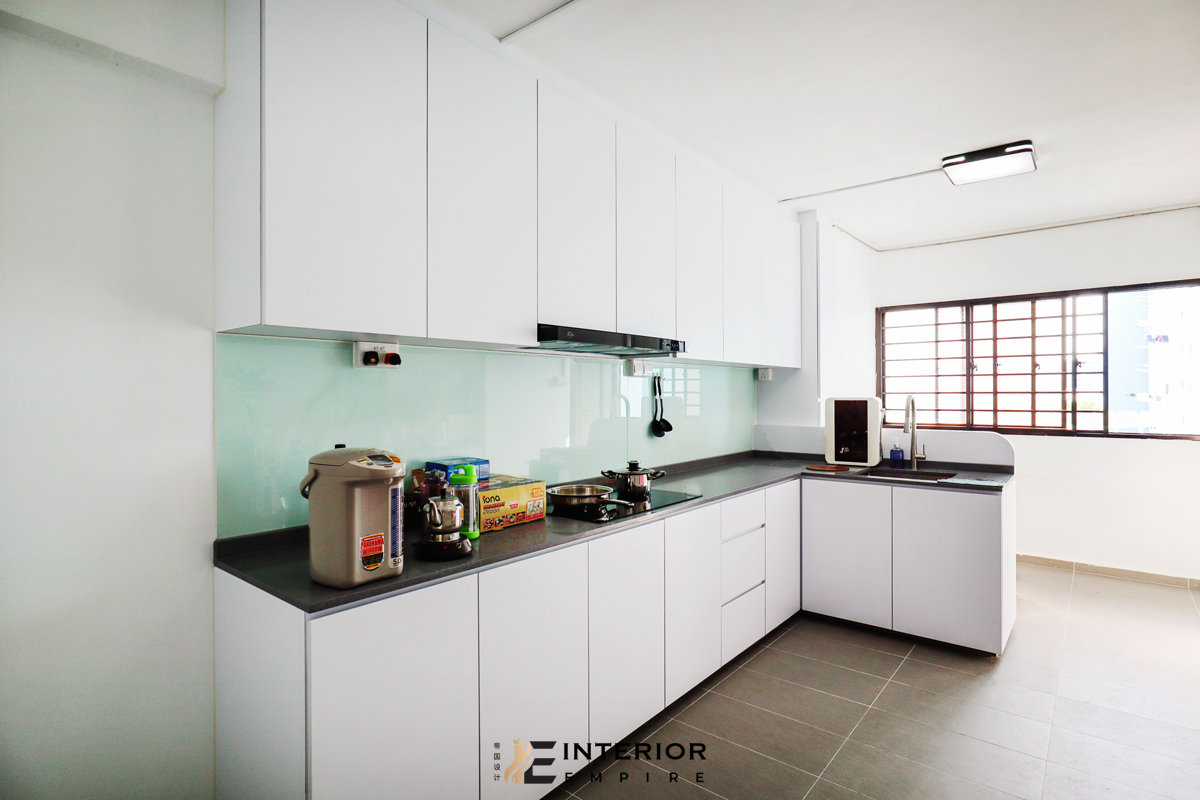Renovating a home can be a major undertaking, and sticking to a renovation schedule is crucial for ensuring the project is completed on time and within budget. In Singapore, where the property market is highly competitive and space is at a premium, staying on schedule is even more critical. However, the reality is that sticking to a renovation schedule can be challenging, as unexpected issues can arise, delays can occur, and changes to the original plan may be necessary. This is where proper Contingency planning and preparation can make all the difference.
Renovating your home can be a fulfilling experience, but it’s challenging. Sticking to a renovation schedule is vital in Singapore, where property prices are high, and time is of the essence. In this article, we’ll provide valuable tips and tricks to help you keep your renovation project on track, ensuring you get the most out of your investment. Following our advice, you can avoid common pitfalls and make your renovation project successful. So, let’s dive in and explore how you can stay on schedule during a home renovation.

Setting realistic timelines
1) Assessing the scope of work
One of the most important steps in setting a renovation schedule is assessing the scope of work. This involves identifying all the tasks that need to be completed, including any unexpected issues that may arise. By having a clear understanding of the work that needs to be done, you can create a more accurate timeline that takes into account all the necessary tasks.
2) Breaking down tasks into smaller milestones
Breaking down tasks into smaller milestones is another crucial step in setting a renovation schedule. This can help make the project more manageable by dividing it into smaller, more achievable tasks. By breaking down tasks into milestones, you can focus on one step at a time, which can help you stay on track and avoid feeling overwhelmed.
3) Prioritizing tasks
Prioritizing tasks is also an essential part of setting a renovation schedule. Some tasks may be more critical than others, and by prioritizing them, you can ensure that they are completed first. This can help prevent any delays if a critical task is not completed on time. By prioritizing tasks, you can also ensure that you are focusing your time and resources on the most important parts of the renovation project.
4) Flexibility
It’s important to be flexible when setting a renovation schedule. Unexpected issues can arise, and it’s essential to have contingency plans in place to deal with them. By being flexible and having backup plans, you can ensure that your renovation project stays on track, even in the face of unexpected challenges. This can help you avoid any major delays or setbacks, which can be costly and frustrating.
Setting a renovation schedule involves assessing the scope of work, breaking down tasks into smaller milestones, prioritizing tasks, and being flexible. By following these tips, you can ensure that your renovation project is completed on time and within budget. Remember to plan and prepare for your renovation project thoroughly, and you’ll be rewarded with a beautifully renovated home that you can be proud of.
5) Creating a realistic timeline
Creating a realistic timeline is crucial in sticking to your renovation schedule. This involves assessing the work scope, breaking tasks into smaller milestones, and prioritizing tasks. Based on these factors, you can create an achievable and accurate timeline. It’s important to consider any unexpected issues that may arise and to be flexible in case of delays or setbacks. By creating a realistic timeline, you can ensure that your renovation project stays on track and that you can enjoy your newly renovated home on time.
Hiring the right contractors
1) Researching contractors
Researching contractors is an essential step in hiring the right team for your renovation project. You can start by looking for recommendations from family and friends, checking online directories or websites, and reviewing contractors’ portfolios. It’s important to ensure that the contractors you’re considering have the necessary licenses, insurance, and experience to handle your renovation project.
2) Checking references and reviews
Checking references and reviews is also crucial when hiring contractors. You can ask for references from previous clients and contact them about their experience with the contractor. You can also check online reviews on platforms such as Google or social media to understand how other clients have found their services.
3) Interviewing potential contractors
Interviewing potential contractors can help you assess their communication skills, professionalism, and experience. During the interview, you can discuss your renovation project, ask for an estimate, and inquire about their previous experience with similar projects. It’s important to clearly understand how the contractor will manage the project, including their process for managing unexpected issues.
4) Signing a detailed contract
Once you’ve chosen a contractor, it’s important to sign a detailed contract that outlines the scope of work, timelines, and payment schedules. The contract should also include details about the materials to be used, warranties, and any contingencies. Having a detailed contract can help prevent any misunderstandings or disputes that may arise during the renovation project.
 Managing the renovation process
Managing the renovation process
1) Regular communication with contractors
Regular communication with contractors is essential in managing the renovation process. It’s important to establish clear lines of communication and to have regular check-ins to discuss the progress of the renovation project. By maintaining open communication, you can ensure that any potential issues are identified early and that the project stays on track.
2) Monitoring progress and identifying potential problems
Monitoring progress and identifying potential problems is also a crucial aspect of managing the renovation process. This involves regularly visiting the renovation site to assess progress and identify potential problems. Doing so can address any issues early and avoid costly delays.
3) Making timely decisions and approvals
Making timely decisions and approvals is critical in keeping the renovation project on track. This involves responding promptly to any requests for decisions or approvals from the contractor, such as material or design choices. Delaying decisions or approvals can cause delays and disrupt the renovation schedule.
4) Being flexible and adaptable
Renovation projects can be unpredictable, and unexpected issues may arise. Being flexible and adaptable is crucial in managing the renovation process. This involves being open to changes in the renovation plan, being willing to adjust timelines or budgets as needed, and having a contingency plan in place in case of unexpected issues.
Dealing with delays and unexpected issues
1) Common causes of delays
Several common causes of delays in renovation projects include unforeseen structural issues, changes to the original plan, delivery delays, and inclement weather. Identifying these potential delays early can help you anticipate and plan for them.
2) Anticipating and planning for delays
Anticipating and planning for delays is an important aspect of managing the renovation process. This involves building contingencies into the renovation plan to account for potential delays and unexpected issues. Having a contingency plan in place can help you stay on track even if unexpected issues arise.
3) Communicating with contractors about delays
Clear communication with contractors is essential in dealing with delays and unexpected issues. This involves informing your contractors as soon as possible of any changes or issues that may affect the renovation schedule. By doing so, you can work together to find solutions and minimize the impact of any delays.
4) Negotiating extensions to the timeline
If unexpected issues do cause delays, it may be necessary to negotiate an extension to the renovation timeline. This involves working with your contractor to agree on a revised timeline that takes into account any delays or unexpected issues that have arisen.
Sticking to a renovation schedule is crucial to ensuring a successful and stress-free renovation project. By setting realistic timelines, hiring the right contractors, managing the renovation process, and planning for delays and unexpected issues, homeowners can minimize disruptions and stay on track with their renovation schedule.
Experience hassle-free renovation with Interior Empire Singapore’s expert service
Finding it hard to visualize your unique interior design ideas? Look no further than Interior Empire. As one of the best interior design firms in Singapore, we strive to serve the most innovative ways and new design possibilities in your interior design. Why you should choose as your interior designer:
- We are specialized in creating the highest standards of interior design results out of the most unique and out-of-the-box ideas
- Creating one-of-a-kind design based on our client taste through the help of our certified and experienced designers
- We provide space planning and allocation using the latest 3D visualization technology
- We are experienced in renovating residential and commercial space
- The best quality control and project management to ensure the work gets done on time
Wait no more! Try our different renovation packages based on your different needs. Contact us here or visit our showroom at T-SPACE #08-05, 1 Tampines North | Drive 1 Singapore, Singapore 528559.




